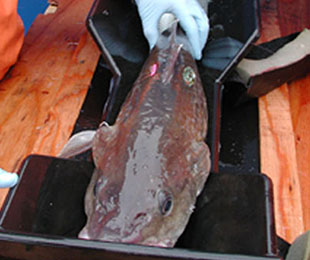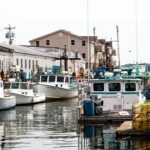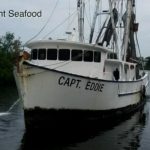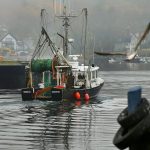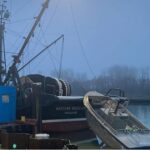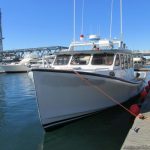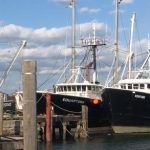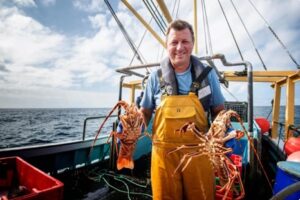Monthly Archives: November 2017
‘Cover-up’ claim over ban on fish farm pesticide
 The Scottish Government put pressure on its environmental watchdog to drop a plan to ban a toxic pesticide in 2018 so as not to upset the fish farming industry. Emails released by the Scottish Environment Protection Agency (Sepa) reveal that senior government officials intervened directly to delete any mention of the proposed 2018 ban from a policy briefing for the environment minister, Roseanna Cunningham, following a complaint from the industry. The pesticide, known as emamectin and marketed as Slice, is widely used by fish farmers to kill the lice that plague caged salmon. But new scientific evidence suggests it is also causing widespread damage to wildlife in Scotland’s sea lochs. click here to read the story 09:10
The Scottish Government put pressure on its environmental watchdog to drop a plan to ban a toxic pesticide in 2018 so as not to upset the fish farming industry. Emails released by the Scottish Environment Protection Agency (Sepa) reveal that senior government officials intervened directly to delete any mention of the proposed 2018 ban from a policy briefing for the environment minister, Roseanna Cunningham, following a complaint from the industry. The pesticide, known as emamectin and marketed as Slice, is widely used by fish farmers to kill the lice that plague caged salmon. But new scientific evidence suggests it is also causing widespread damage to wildlife in Scotland’s sea lochs. click here to read the story 09:10
Falklands calamari prices recover significantly as second season catch is below market expectations
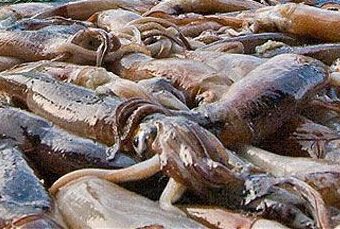 Recent reports in trade journals that abundant catches during 2017 were depressing Falkland Islands loligo prices were challenged this week by local sources concerned with the fishing industry. The Falkland Islands Director of Natural Resources, John Barton, described 2017 as “a good calamari year” despite the “unusual and surprising” challenge of dealing with sea lion mortalities during the second loligo season. Some 24,000 metric tons were caught during that season. click here to read the story 22:33
Recent reports in trade journals that abundant catches during 2017 were depressing Falkland Islands loligo prices were challenged this week by local sources concerned with the fishing industry. The Falkland Islands Director of Natural Resources, John Barton, described 2017 as “a good calamari year” despite the “unusual and surprising” challenge of dealing with sea lion mortalities during the second loligo season. Some 24,000 metric tons were caught during that season. click here to read the story 22:33
Alaska salmon season a success in global market
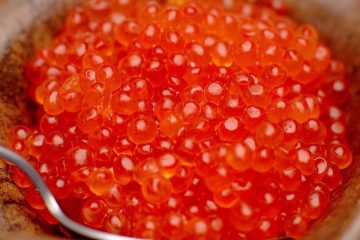 It was a generally good salmon season for Alaska, except for one species. “It was a disastrous year for chinook harvest.” That’s Andy Wink, a seafood economist with the consulting firm McDowell Group. Wink says while king salmon may be the most famous salmon species among Alaskans, it also makes up the lowest total value of all the different commercial salmon species. “Sockeye, pink salmon, chum salmon, those are the species that for the commercial fleet really move the needle in terms of total value.” click here to read the story 19:25
It was a generally good salmon season for Alaska, except for one species. “It was a disastrous year for chinook harvest.” That’s Andy Wink, a seafood economist with the consulting firm McDowell Group. Wink says while king salmon may be the most famous salmon species among Alaskans, it also makes up the lowest total value of all the different commercial salmon species. “Sockeye, pink salmon, chum salmon, those are the species that for the commercial fleet really move the needle in terms of total value.” click here to read the story 19:25
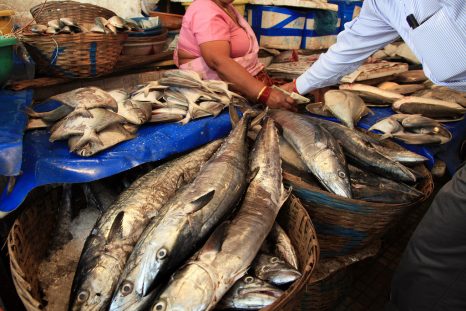
Middlemen cause retail fish price to soar
The soaring retail prices of fish can be attributed to the multiple middlemen involved, as the catch exchanges hands from the trawlers before it reaches the Goan homes. Although the authorities are trying hard to control the prices, all such efforts are going in vain due to the alleged nexus between the middlemen traders and fishermen groups, it is learnt.Both the consumers and producers gain immensely from the role of middlemen, who ensure that there is a seamless flow of fish supply in the market by matching supply and demand. Regardless of the important role they play, there are some disadvantages to having intermediaries in the distribution channel. click here to read the story 13:32
Drill, baby, drill in the eastern Gulf? Don’t even think about it
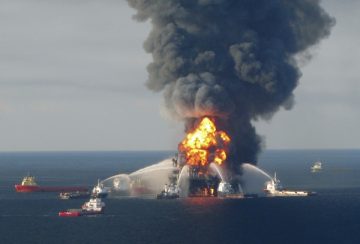 Only a lucky break kept oil from the historic BP spill in 2010 away from the Florida Keys and Southwest Florida’s beaches. Though the spill happened off the coast of Louisiana, so much oil gushed from the blowout that it reached the Loop Current, which is part of the Gulf Stream. Normally, the current would have brought the oil far enough to reach South Florida after blackening beaches in the Panhandle. Yet oil lobbyists and Congress are firing again. Congressional Republicans want to open more of the Gulf of Mexico to drilling. President Trump, who favors more exploration for fossil fuels, is empowering them. click here to read the story 13:09
Only a lucky break kept oil from the historic BP spill in 2010 away from the Florida Keys and Southwest Florida’s beaches. Though the spill happened off the coast of Louisiana, so much oil gushed from the blowout that it reached the Loop Current, which is part of the Gulf Stream. Normally, the current would have brought the oil far enough to reach South Florida after blackening beaches in the Panhandle. Yet oil lobbyists and Congress are firing again. Congressional Republicans want to open more of the Gulf of Mexico to drilling. President Trump, who favors more exploration for fossil fuels, is empowering them. click here to read the story 13:09
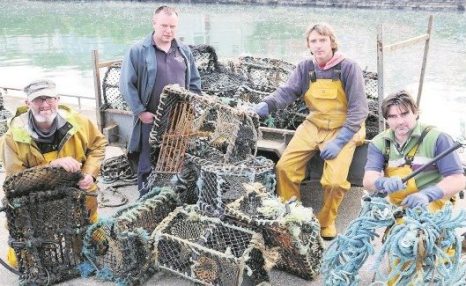
Shellfish catches devastated by Ophelia – Fishermen appeal for financial assistance
Fishermen dealing in crab, lobster, and shrimp have appealed for financial assistance. They claim their autumn and winter catch prospects have been devastated by Hurricane Ophelia. Fishing vessels licensed to catch crab and shrimp, from Courtmacsherry to Baltimore, in West Cork, and also up along the Wild Atlantic Way and in the south-east, suffered huge damage to their gear, specifically the pots dropped out at sea for extended periods. Colin Cashman, a 44-year-old fishing out of Courtmacsherry, said the hurricane caused €20,000 of damage to his pots and curtailed his ability to continue fishing up to the end of the regular season, ahead of Christmas: “I have never seen anything like it, as long as I’m going.” click here to read the story 11:37
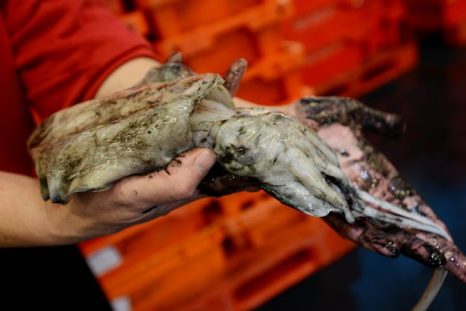
Plymouth fish market brings in record-breaking £1million ($1,130,7796.43) haul in a week
Plymouth’s fish market has recorded its first £1 million week. The Sutton Harbour market’s sales in the first three days of the week alone were than higher than in the whole of 1994, the last year of the old Barbican fish market. And the final tally yesterday was £1,002,000. Trawlers poured in a bumper harvest through the week, with cuttlefish leading the charge. David Pessell from Plymouth Trawler Agents said they sold 195 tonnes of cuttlefish, worth £600,000, most destined for Spain and Italy. “We have had more than 120 boats landing to us this week,” Mr Pessell said.
Louisiana: New restrictions create burden for local crabbers
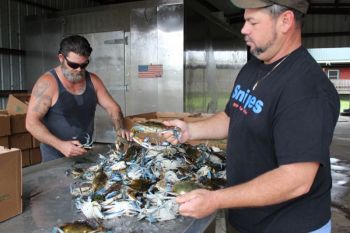 For Whitney Curole of Des Allemands, being a fisherman is an “always” kind of thing — he’s been a crabber since his teenage years, following in the footsteps of his father, and that passion for fishing runs throughout his entire family. But all of that experience nonetheless doesn’t mean it’s not hard sometimes. This year was the first in which the Louisiana Department of Wildlife and Fisheries placed restrictions on blue crab harvest in an effort to restore the blue crab’s population in state waters. “I fought against (the initial one-month ban),” said Curole, who catches crabs and ships them all over the country and who retails crabs himself through his family business in Donaldsonville. click here to read the story 09:05
For Whitney Curole of Des Allemands, being a fisherman is an “always” kind of thing — he’s been a crabber since his teenage years, following in the footsteps of his father, and that passion for fishing runs throughout his entire family. But all of that experience nonetheless doesn’t mean it’s not hard sometimes. This year was the first in which the Louisiana Department of Wildlife and Fisheries placed restrictions on blue crab harvest in an effort to restore the blue crab’s population in state waters. “I fought against (the initial one-month ban),” said Curole, who catches crabs and ships them all over the country and who retails crabs himself through his family business in Donaldsonville. click here to read the story 09:05
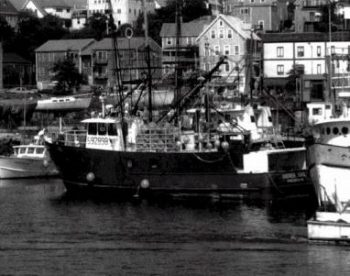
On This Day – November 4, 1991 – Swordfishing Boat Missing, Overdue
The Coast Guard continued searching today for a fishing boat due back in Gloucester last Friday from a trip to the Grand Banks off Newfoundland, Canada. The 70-foot Andrea Gail was supposed to have returned to port by Saturday with its crew of six fishermen. Several Gloucester fishermen were said to be aboard the vessel, but Coast Guard officials were withholding crew members’ names this morning pending notification of their families. The vessel has not been heard from since Thursday when it was reported to be 180 miles east-northeast of Canada’s Sable Island. The missing vessel was reported to be encountering 30-foot seas and 50 to 80-know winds kicked up by the northeaster that devastated coastal New England last week. click here to read the story 08:13
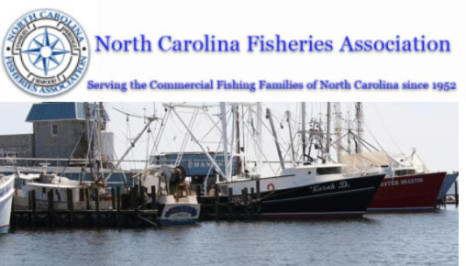
North Carolina Fisheries Association Weekly Update for November 3, 2017
Click here to read the Weekly Update, to read all the updates Click here, for older updates listed as NCFA click here 22:49

Fisherman dies getting pulled overboard off the coast of Eureka on Wednesday afternoon.
Redcrest resident and fisherman Melvin Richard Van Ronk died Wednesday afternoon after becoming entangled in fishing gear and being pulled overboard while fishing off the coast of Eureka, according to the Coast Guard Sector Humboldt Bay and the Humboldt County Sheriff’s Office on Thursday. Van Ronk, 77, was fishing on the vessel “Ruth R” out of Eureka about 15 miles off the coast when he became entangled in the fishing gear, according to Coast Guard Sector Humboldt Bay Public Information Officer Audra Forteza. click here to read the story 22:23
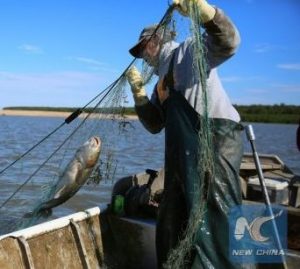
Chinese business brings prosperity to fishermen on Mississippi
After less than 10-minute cruising on the Mississippi River in west Kentucky, Mark Buttler stopped his boat near a shoal and began to cast nets. He harvested 400 pounds of fish from two fishnets on this bright autumn morning. For the 62-year-old fisherman, who joined his father for fishing soon after high school graduation in the westernmost part of the U.S. state of Kentucky, the daily routine also includes selling his catch to a local business run by a Chinese entrepreneur. Before 2013, he sold his fish either to a market up north or to a seafood restaurant in Ledbetter, Kentucky. Then Angie Yu came to the City of Wickliffe in west Kentucky and opened the Two Rivers Fisheries to process fish from the Mississippi. Yu’s efforts also coincide with the U.S. government’s eagerness to remove some of the Asian carp from the river. click here to read the story 17:53
H.R. 1456 and S. 793 – Congressman Walter B. Jones Weighs in for North Carolina Fishermen
 Congressman Walter B. Jones (NC-3) is moving to help Eastern North Carolina fishermen who could be hurt by legislation pending before Congress. The bills threaten America’s domestic shark fisheries, and a significant piece of those fisheries is in Eastern North Carolina. They are sustainably managed and help support the economy in coastal North Carolina and other small fishing communities around the country. The bills – H.R. 1456 and S. 793 – purport to be an attempt to stop the practice of shark finning (i.e. the process of removing fins at sea and discarding the shark). They seek to do so by banning the sale of fins, even those harvested legally here in the United States. click here to read the press release 14:53
Congressman Walter B. Jones (NC-3) is moving to help Eastern North Carolina fishermen who could be hurt by legislation pending before Congress. The bills threaten America’s domestic shark fisheries, and a significant piece of those fisheries is in Eastern North Carolina. They are sustainably managed and help support the economy in coastal North Carolina and other small fishing communities around the country. The bills – H.R. 1456 and S. 793 – purport to be an attempt to stop the practice of shark finning (i.e. the process of removing fins at sea and discarding the shark). They seek to do so by banning the sale of fins, even those harvested legally here in the United States. click here to read the press release 14:53
Nova Scotia Mi’kmaq vie for licence in lucrative Arctic surf clam fishery
 Thirteen Nova Scotia Mi’kmaq bands have announced they are partnering with Clearwater Seafoods to seek a licence in the lucrative Arctic surf clam fishery, following a recent call by Ottawa for new entrants in a sector currently fished by Clearwater alone. The announcement of the “operational partnership” was made Thursday by Chief Terrance Paul, co-chair of the Assembly of Nova Scotia Mi’kmaq Chiefs. click here to read the story 13:39
Thirteen Nova Scotia Mi’kmaq bands have announced they are partnering with Clearwater Seafoods to seek a licence in the lucrative Arctic surf clam fishery, following a recent call by Ottawa for new entrants in a sector currently fished by Clearwater alone. The announcement of the “operational partnership” was made Thursday by Chief Terrance Paul, co-chair of the Assembly of Nova Scotia Mi’kmaq Chiefs. click here to read the story 13:39
Atlantic and Quebec Indigenous Groups and Ocean Choice International Partner in Bid for Arctic Surf Clam Quota – About the Partners – click here to read the OCI press release
Insuring fishing boats in the Maritimes
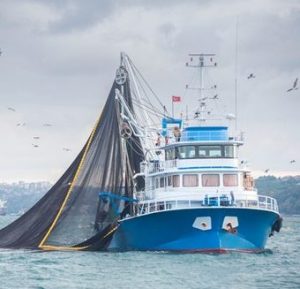 Fishing and fishing vessels – these are things that are synonymous with the Maritimes. And where there’s industry, there is risk. And where there’s risk, there is insurance. To discuss the business of Eastern Canadian fishing insurance, Insurance Business spoke to Keith Amirault, vice president Fairway Insurance Services, based out of Digby, Nova Scotia. The industry is changing, Amirault said, with companies consolidating fishing programs for greater efficiencies. click here to read the story 12:00
Fishing and fishing vessels – these are things that are synonymous with the Maritimes. And where there’s industry, there is risk. And where there’s risk, there is insurance. To discuss the business of Eastern Canadian fishing insurance, Insurance Business spoke to Keith Amirault, vice president Fairway Insurance Services, based out of Digby, Nova Scotia. The industry is changing, Amirault said, with companies consolidating fishing programs for greater efficiencies. click here to read the story 12:00
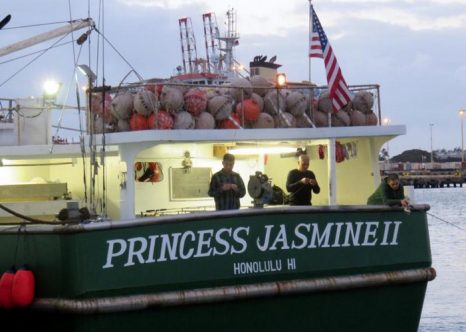
Bill introduced allowing Hawaii’s foreign fishermen onshore
Hundreds of foreign fishermen currently confined to vessels in Honolulu for years at a time would be allowed to come ashore when they dock under legislation introduced Thursday in Congress. The Sustainable Fishing Workforce Protection Act offers workplace protections a year after an Associated Press investigation found that Hawaii’s commercial fishing fleet is crewed by about 700 men who are never allowed off their boats, even when they come into the Honolulu Harbor to unload their catch. Sen. Mazie Hirono, “This bill provides necessary protections for foreign fishermen and ensures the continued viability of Hawaii’s longline fishing fleet, which is important to our culture,” click here to read the story 11:24
New York businessman set to be sentenced for dealing in black market eels from Virginia
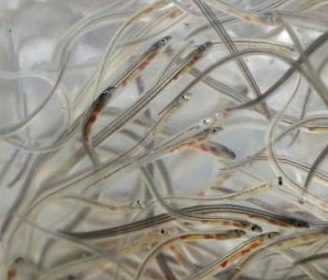 Tommy Zhou knew what they were doing was illegal, according to court documents. American eel stocks were low as Asian markets rushed to buy more, and strict caps were being imposed on U.S. fishermen. But Zhou told the undercover police officers who came to his New York office in 2013 that selling him black market eels wouldn’t be a problem as long as no one developed a “big mouth.” And, he said, he was willing to spend $200,000 to have them killed if they betrayed him. Zhou, of New York, pleaded guilty earlier this year to illegally trafficking more than $150,000 worth of juvenile American eels, also known as “elvers” or “glass eels.” He is set to be sentenced this afternoon in U.S. District Court. click here to read the story 10:59
Tommy Zhou knew what they were doing was illegal, according to court documents. American eel stocks were low as Asian markets rushed to buy more, and strict caps were being imposed on U.S. fishermen. But Zhou told the undercover police officers who came to his New York office in 2013 that selling him black market eels wouldn’t be a problem as long as no one developed a “big mouth.” And, he said, he was willing to spend $200,000 to have them killed if they betrayed him. Zhou, of New York, pleaded guilty earlier this year to illegally trafficking more than $150,000 worth of juvenile American eels, also known as “elvers” or “glass eels.” He is set to be sentenced this afternoon in U.S. District Court. click here to read the story 10:59
Fiona MacInnes: Why it’s time to wake up, smell the fish, and really take back control
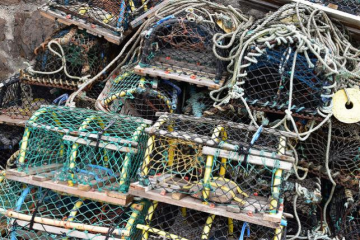 Fiona MacInnes looks at Scotland’s fishing industry and argues that, post-Brexit, the industry is either heading for total corporate domination that will exhaust our resources and impoverish fisherman, or a new collective model where fish are used for the good of Scotland as a whole.,, If the last time you saw a fishing boat was on a Captain Birdseye ad then fish is of more importance to you than just about anything else. It may be the last national asset that you can claim some ownership of. Count up the natural assets that you have lost, and realise why fish is the most important economic and political football of the day. It is the new oil. click here to read the story 10:02
Fiona MacInnes looks at Scotland’s fishing industry and argues that, post-Brexit, the industry is either heading for total corporate domination that will exhaust our resources and impoverish fisherman, or a new collective model where fish are used for the good of Scotland as a whole.,, If the last time you saw a fishing boat was on a Captain Birdseye ad then fish is of more importance to you than just about anything else. It may be the last national asset that you can claim some ownership of. Count up the natural assets that you have lost, and realise why fish is the most important economic and political football of the day. It is the new oil. click here to read the story 10:02
How Big Business Uses Big Government To Ruin Small Fishermen Like Me
 Ensnared in an international trade dispute between Vietnam and very large U.S. catfish farms are hundreds of small wild-caught catfish producers throughout the United States. As a commercial fisherman for near on 40 years now, it didn’t take long for me to figure out that nature was at best ambivalent about whether I make a living. Being driven from the water by a thunderstorm that made working the last few crabtraps in a string unsafe was not unusual. Even if the weather part of nature cooperated, of course, there were fluctuations in abundance.,, But you know what, your own government is not nature click here to read the story 09:08
Ensnared in an international trade dispute between Vietnam and very large U.S. catfish farms are hundreds of small wild-caught catfish producers throughout the United States. As a commercial fisherman for near on 40 years now, it didn’t take long for me to figure out that nature was at best ambivalent about whether I make a living. Being driven from the water by a thunderstorm that made working the last few crabtraps in a string unsafe was not unusual. Even if the weather part of nature cooperated, of course, there were fluctuations in abundance.,, But you know what, your own government is not nature click here to read the story 09:08
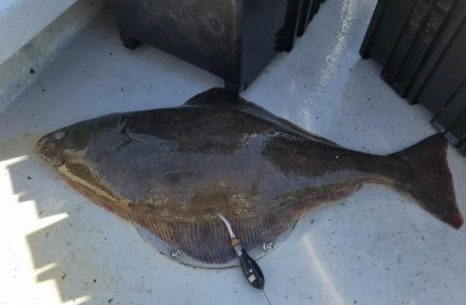
Cape Cod fishermen have high hopes for halibut
On the U.S. side of the border Atlantic halibut are listed under the Endangered Species Act and fishermen are limited to one fish per trip. Less than a half a day’s steam to the east, the same fish is the poster child for sustainable fishery management and generates between $100 million and $200 million a year for Canadian fishermen. It’s a divergence shrouded in mystery as deep as the ocean on either side of the Hague Line, the boundary that separates the two nations out to the 200 mile limit of their exclusive economic zones. The target date to rebuild the U.S. Atlantic halibut stock to healthy levels is 2056, nearly 40 years in the future. click here to read the story 07:49
NEFMC Undertakes Independent Review to Assess Past Performance and Solicit Suggestions for Improvement
 The New England Fishery Management Council is undergoing an independent review to: (1) assess past performance; (2) gather feedback on strengths and weaknesses of the Council process and operations; and (3) identify potential areas for improvements. Stakeholder input is critical to this review. The Council is encouraging commercial and recreational fishermen, industry leaders, fishery managers, members of non-governmental organizations, and other stakeholders to participate in the effort. ONLINE SURVEY – Port meetings from Maine to New Jersey click here to read the information 21:30
The New England Fishery Management Council is undergoing an independent review to: (1) assess past performance; (2) gather feedback on strengths and weaknesses of the Council process and operations; and (3) identify potential areas for improvements. Stakeholder input is critical to this review. The Council is encouraging commercial and recreational fishermen, industry leaders, fishery managers, members of non-governmental organizations, and other stakeholders to participate in the effort. ONLINE SURVEY – Port meetings from Maine to New Jersey click here to read the information 21:30
D.B. Pleschner: Nearshore anchovy abundance not proof fishery is collapsing
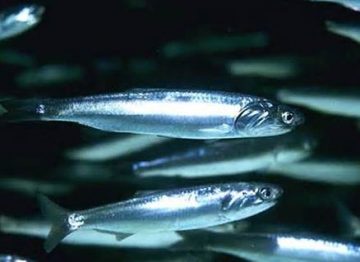 Recently, Dr. William Sydeman of the Farallon Institute, published a study claiming that the abundance of anchovy near shore — especially in places like Monterey — is evidence that the population is collapsing. Sydeman’s logic is based on an old argument that collapsed populations always shrink inshore. But there’s one big problem with that theory — it’s unsupported by scientific evidence.,,, The bottom line: environmental groups with an anti-fishing agenda are already gearing up to hot-box the Pacific Fishery Management Council in spring 2018, lobbying for a steep reduction in anchovy harvest limits, employing whatever colorful, sensational pictures they can paint. click here to read the story 20:58
Recently, Dr. William Sydeman of the Farallon Institute, published a study claiming that the abundance of anchovy near shore — especially in places like Monterey — is evidence that the population is collapsing. Sydeman’s logic is based on an old argument that collapsed populations always shrink inshore. But there’s one big problem with that theory — it’s unsupported by scientific evidence.,,, The bottom line: environmental groups with an anti-fishing agenda are already gearing up to hot-box the Pacific Fishery Management Council in spring 2018, lobbying for a steep reduction in anchovy harvest limits, employing whatever colorful, sensational pictures they can paint. click here to read the story 20:58
Prince Edward Island’s 2017 tuna fishery is down to its final 11 fish
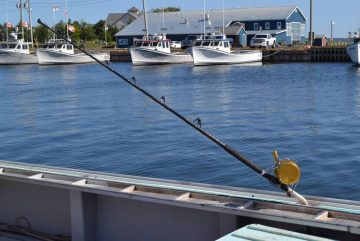 The Department of Fisheries and Oceans reports that, as of Monday, there were 10 tags still remaining for Prince Edward Island’s share of the Canadian allocation, and one tag remaining for Mexican quota which was transferred to the P.E.I. fishery. Tag-holders have until December 31 to catch their fish, but they might have to sail a distance to get them on the hook. Doug Fraser, a western P.E.I. representative on the tuna advisory committee said there hasn’t been a tuna landed off North Cape since late last week. click here to read the story 17:54
The Department of Fisheries and Oceans reports that, as of Monday, there were 10 tags still remaining for Prince Edward Island’s share of the Canadian allocation, and one tag remaining for Mexican quota which was transferred to the P.E.I. fishery. Tag-holders have until December 31 to catch their fish, but they might have to sail a distance to get them on the hook. Doug Fraser, a western P.E.I. representative on the tuna advisory committee said there hasn’t been a tuna landed off North Cape since late last week. click here to read the story 17:54
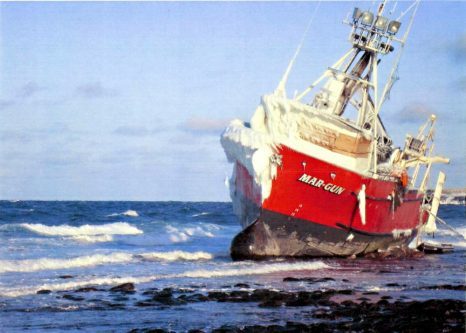
Coast Guard reminds icing dangers, vessel stability for winter fishing season in Alaska
The Coast Guard reminds commercial fishing vessel operators to be aware of the dangers of icing and vessel stability as the winter fishing season gets underway across Alaska. A vessel’s center of gravity can rapidly rise when freezing spray accumulates high above the main deck. Icing conditions exceeding 1.3 inches increase the risk of capsizing and sinking. Operators should use all available resources to determine if icing and freezing spray is forecast in their location for the next 48 to 72-hour time window. If icing conditions are forecast or present, operators should seek shelter, reduce speed, change course and manually remove ice. click here to read press release 15:55
U.S. Coast Guard Issues New Jones Act Build Guidance
 U.S. maritime laws generally referred to as the “Jones Act” restrict U.S. domestic commerce to “U.S.-built” vessels. Because the rules governing what constitutes “U.S.-built” are technical and esoteric, and the consequences of not meeting the standards can be financially catastrophic for the shipyard or vessel owner or both, the U.S. Coast Guard has a regulatory process where it provides advance guidance confirming that a prospective project satisfies the applicable criteria. On October 4, 2017, the Coast Guard issued build determinations for the two Kanaloa-class combination container and roll-on/roll-off vessels to be constructed by the National Steel and Shipbuilding Company (NASSCO). These build determinations have taken on added importance because of the America’s Finest project. click here to read the story 15:04
U.S. maritime laws generally referred to as the “Jones Act” restrict U.S. domestic commerce to “U.S.-built” vessels. Because the rules governing what constitutes “U.S.-built” are technical and esoteric, and the consequences of not meeting the standards can be financially catastrophic for the shipyard or vessel owner or both, the U.S. Coast Guard has a regulatory process where it provides advance guidance confirming that a prospective project satisfies the applicable criteria. On October 4, 2017, the Coast Guard issued build determinations for the two Kanaloa-class combination container and roll-on/roll-off vessels to be constructed by the National Steel and Shipbuilding Company (NASSCO). These build determinations have taken on added importance because of the America’s Finest project. click here to read the story 15:04
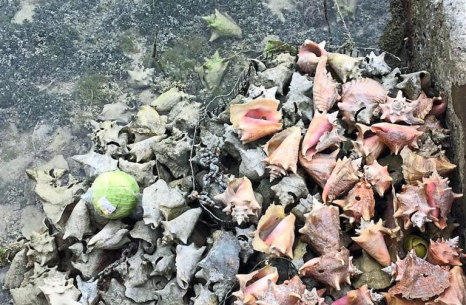
MPA’s – Conch herds face death by old age as young molluscs disappear
The queen of the sea, a monster mollusk that inspired its own republic in the American state of Florida, is in trouble. A marine preserve in the Bahamas, famed for its abundance of queen conches, is missing something too: young conches. Researchers studying the no-take park (where no collection of marine animals is allowed) off Exuma in the Bahamas, one of hundreds throughout the Caribbean, found that over the last two decades, the number of young has sharply declined as adult conches steadily matured and died off. The discovery also raises questions about the effectiveness of marine preserves, long viewed as a solution to reviving overfished stocks. If one of the Caribbean’s oldest and best marine preserves isn’t working to replenish one of its biggest exports – now regulated as tightly as lobster – what does that mean for other preserves and how they’re managed? click here to read the story 11:33
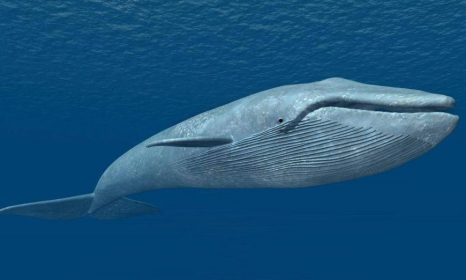
Scientist exposes impacts of seismic airguns on NZ Blue Whales
A renowned marine ecologist at Oregon State University has laid bare the harmful impacts that seismic blasting for oil has on New Zealand’s marine life, including the blue whale. Dr Leigh Torres from the Marine Mammal Institute at Oregon State University, has penned a blog and released recordings that expose the intensity of the seismic airguns used by the petroleum industry to search for oil. The report was written in collaboration with Dr Holger Klinck from Cornell University. click here to read the story 10:53
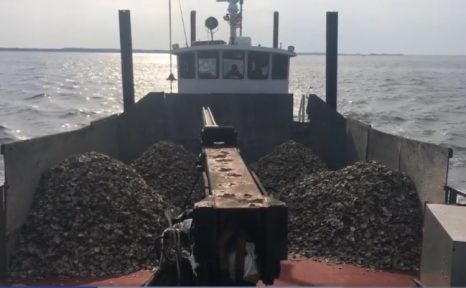
Maryland slashes oyster restoration acreage goal in Eastern Shore sanctuary
Maryland has decided to reduce the large-scale oyster restoration project goal in the Little Choptank River after boaters ran aground at another sanctuary and some of the man-made reefs there had to be rebuilt. The sanctuaries are among five planned to be built as part of a federal-state agreement to improve water quality in the Chesapeake Bay watershed.,, Skeptical of oyster restoration from the start, watermen have complained of trotlines getting stuck in new stone river bottoms and boats being damaged by oyster reef “high spots” in Harris Creek. A trotline is a long, heavy fishing line with short, baited lines suspended from it. They are often used to catch blue crabs in Maryland. click here to read the story 09:46
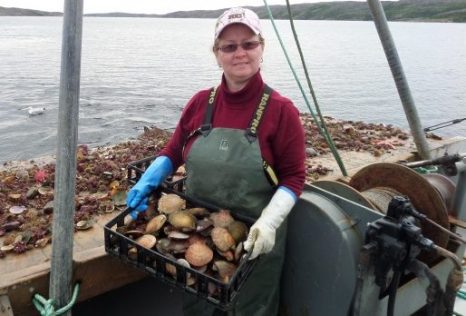
‘Our livelihood is taken from us’: Couple feels left out of William’s Harbour resettlement
The Russells have fished out of William’s Harbour for 28 years — from a house that’s been in their family for generations — but they aren’t getting compensation for their home or a say in the community’s resettlement. “[We] never had enough time in,” said Maryhannah Russell. The Newfoundland and Labrador government is providing up to $270,000 per household for residents of the village — located on an island off Labrador’s south coast — to move out.,, click here to read the story 09:10






